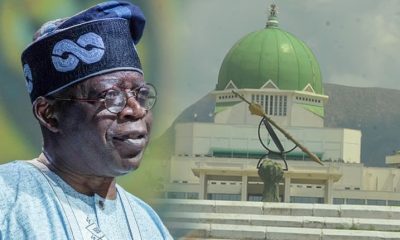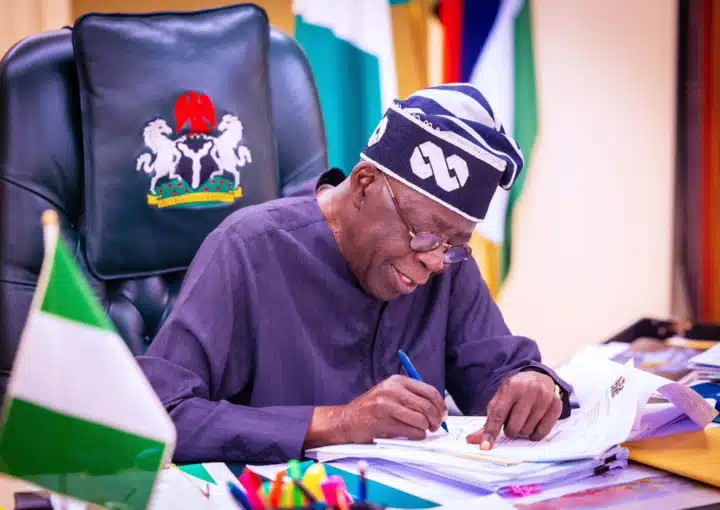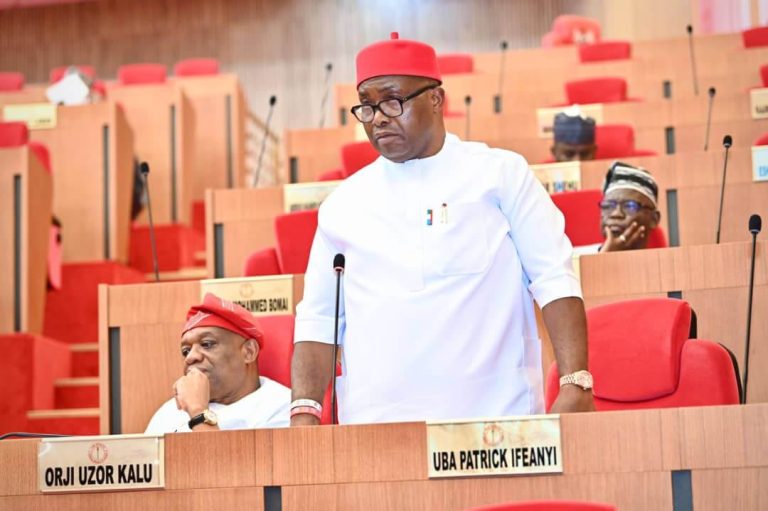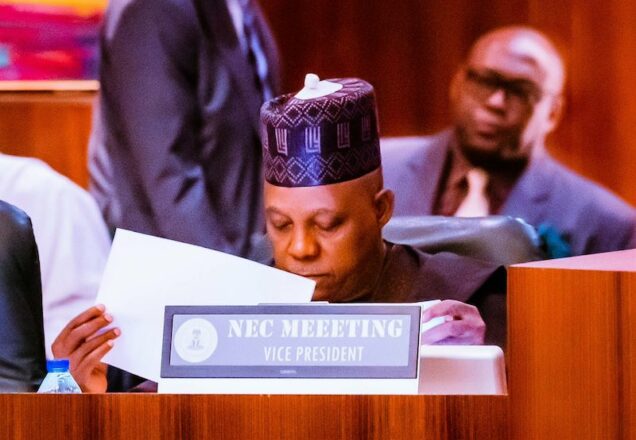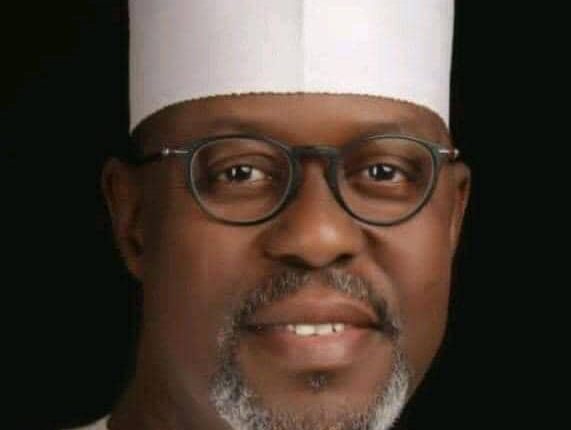News
Nigerians Will Determine State Police, Parliamentary System — NASS
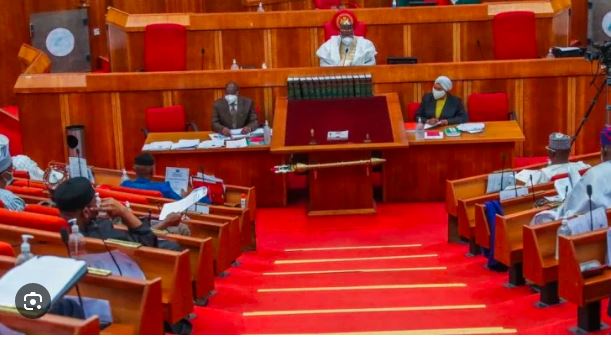
EKO HOT BLOG reports that the Senate has affirmed that Nigerians, through their elected representatives, will have the final say on whether the country will adopt state and local policing, deviating from the current federal structure in place, as well as determining the preferred system of government.
Yemi Adaramodu, the spokesperson for the Senate, emphasized that the Senate’s stance aligns with the collective will of the Nigerian populace. He underscored the importance of soliciting and respecting the views of Nigerians in shaping critical decisions affecting the nation’s security architecture and governance framework.
EDITOR’S PICKS
- Full List Of AFCON Awards As Ekong Wins Player Of The Tournament
- REVEALED! How Model Of Aircraft Carrying Wigwe, Wife, Son Crashed Multiple Times In 2023
- Tinubu Meets Tijaniyya Leader, Khalifa Muhammad Mahe Niass In Aso Rock (Photos)
The announcement follows discussions initiated by President Bola Tinubu on Thursday, February 15, 2024. In these deliberations, Tinubu engaged with state governors, reaching a consensus on the establishment of state and community police systems. The objective is to mitigate the pervasive threat of insecurity that has disrupted the nation’s peace and stability.
Responding to this, Adaramodu stated that the Senate had on Wednesday formed a committee to review the Constitution, and would allow it to carry out its full responsibilities.
He said, “The Senate has just named its Constitution Review committee, with the Deputy Senate President as the chairman. The committee will have lawmakers from different states across the federation as members.
“The Senate is giving the committee a free hand to relate with various stakeholders across the country. They are to research extensively across every sector; not just as regards policing or security, they will look into different sectors of the economy; from political to economic. We want to do a thorough job this time, so that we don’t keep reviewing the constitution every four years.”

He added the Senate would not just form an opinion, but wait till the committee had interfaced with Nigerians, and brought back the feedback to the upper chamber.
Senator Adaramodu stated, “The parliament is to make laws, and the laws that parliament will make will not be generated outside the interests and aspirations of Nigerians.
“The Constitution amendment committee will meet with all the critical stakeholders in the country, including traditional rulers.
“When they meet and we know what Nigerians want, that is the law we are going to make, because we represent the people, and the law must be the people’s law.”
Speaking on adopting the parliamentary system of government, as proposed by some lawmakers in the green chamber, Adaramodu insisted that Nigerians were the ones that would determine what system of government they wanted to practise.
He said, “It is a major constitutional issue that cannot be dealt with only on the floor of the NASS. The committee will hear from Nigerians, who are the ones that will determine whether they want to change the system of government in place. It is whatever they decide that we will work.”
“A bill is not a law. A bill can only become a law after it has gone through the crucibles of legislative scrutiny. The language of the Senate is the language of Nigeria, because we are a vital part of the body. We will speak the same language as Nigerians when the bills come to us.”
In a similar vein, the House of Representatives called for inputs from Nigerians to shape the narratives ahead of the commencement of the constitutional amendment process.
Earlier in the week, 60 members the House of Representatives, led by the Minority Leader, Kinglsey Chinda, had presented some bills for first reading in the hallowed chambers of the House, seeking to amend the 1999 Constitution to pave the way for the adoption of the parliamentary system across all three tiers of government.
In an interview with Punch, the spokesman o f the lower chamber, Akin Rotimi, stated that the 60 lawmakers had commenced a process that required the contributions of Nigerians in order to determine whether or not the parliamentary system of government was preferable to the presidential model.
He said, “The lawmakers have started a key part of the constitutional amendment process, and they are consulting.
“What is important now is for Nigerians, particularly media practitioners, to make their contributions by helping to highlight the merits or otherwise of the parliamentary system.”
On his part, another member of the House of Reps, Oluwole Oke, asserted that though the proposal was good, there were questions to be answered to make the amendment possible.
In an interview with our correspondent, Oke, who represents Obokun/Oriade Federal Constituency, Osun State, said the implications of adopting a parliamentary system were complex, including the possibility of doing away with the 36 states of the federation.
Oke, who chairs the House Committee on Judiciary, added that if adopted, a parliamentary model of government might pave the way for regionalism, as was experienced during the First Republic.
He said, “It is a good idea, considering cost and accountability, but will it ensure equality in terms of representation, taking into account our multicultural nature? If we have to copy the United Kingdom (which practises the parliamentary system), it means the states might have to go, and leave us with two tiers of government— local and federal. We may also need to explore regional and confederation systems, thus embracing true federalism.”
On his part, a constitutional lawyer, Mike Ozekhome, described the move by the lawmakers as ‘a great step in the right direction’.
He said, “The presidential system is prohibitively costly, wasteful, corruption-laden, unaccountable and inhibitive of progress. Wealthy countries, such as the United States of America, can afford it but not poor, hemorrhaging and struggling countries like Nigeria. The parliamentary system is accountable. It makes a prime minister just a minister who can be booted out of office following a vote of no confidence. The United Kingdom is a ready example.”
Meanwhile, another Senior Advocate of Nigeria, Kayode Ajulo, told Saturday PUNCH that the process would entail a fundamental shift in the structure of political governance in the country.
He said, “A transition from the presidential system to a parliamentary one would entail significant changes in the structure and functions of the government.
“Transitioning from a presidential system to a parliamentary one would require amending various provisions of the Constitution to accommodate the new system’s requirements. Some potential constitutional implications that might arise from this transition include the fact that the distribution of powers and roles between the executive and legislative branches would need to be redefined. This would include determining the powers and responsibilities of the prime minister, the cabinet, and the parliament.
“The method of electing the head of government may change, as the prime minister would typically be chosen from the majority party or coalition in the parliament. This would affect the electoral process, including the role of political parties and the voting system.
“The concept of separation of powers, which is a fundamental tenet of the presidential system, may be altered in a parliamentary system. The checks and balances between the executive and legislative branches will also need to be reconsidered.”
He added that the transition could also impact the independence of the judiciary, and the balance of power among the three arms of government. According to him, safeguards will have to be put in place to ensure the continued independence and effectiveness of the judiciary.
However, the Deputy Spokesman, House of Representatives, Philip Agbese, has called for caution over the adoption of state police to address the worsening insecurity in some parts of the country.
FURTHER READING
- Tinubu Not Cause Of The Hardship In Nigeria, I Will Not Join Others To Criticise Him – Sanusi
- BREAKING: Cote d’Ivoire Beats Nigeria’s Super Eagles, Wins AFCON Trophy
- UK Minister, Kemi Badenoch Arrives Nigeria For 3-day Visit
In an interview with one of our correspondents, Agbese said, “That (adopting state police) will throw the country into the state of anarchy and confusion, because state police will be worse than what we are experiencing at the moment, when politicians will arm people to kill their political opponents.
“We ought to wait for proper constitutional amendment before we take that kind of drastic step. The position of the House is that if a bill is not presented, we don’t speak on it, but my personal opinion as a representative of the people, is that state police is going to be another call for anarchy, and we will witness more killings in the country.”
Click to watch our video of the week
Advertise or Publish a Story on EkoHot Blog:
Kindly contact us at [email protected]. Breaking stories should be sent to the above email and substantiated with pictorial evidence.
Citizen journalists will receive a token as data incentive.
Call or Whatsapp: 0803 561 7233, 0703 414 5611




